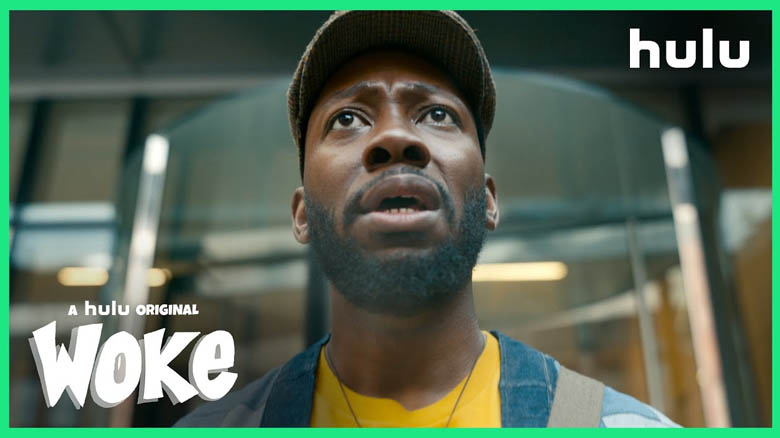3884Views 0Comments


Hulu’s Woke takes a sleepy approach to race in America


Although the country is only now ostensibly reckoning with its well-documented history of systemic racism and state-sanctioned violence, the past seven years since the inception of the Black Lives Matter movement have been especially punctuated by stories of the injustices levied against Black Americans. The ongoing conversation has evolved in its sense of urgency after the killings of George Floyd, Elijah McClain, Breonna Taylor, and countless others at the hands of police. Still, the central talking points—overpolicing in Black communities, unchecked white privilege, white supremacy bolstered by an apathetic administration—remain consistent to the point of being almost wearisome. Living as a person who has to constantly litigate their own humanity with those who simply aren’t interested in equity makes for a deeply exhausting existence.
But art serves as an invigorating form of resistance, a way to vividly illustrate truths that become increasingly more difficult to articulate and help us fight through the fatigue. If you’re lucky, you’re left with a work that is both enjoyable and potent enough to push the conversation forward. In that spirit, Hulu’s Woke aims to join the likes of Little Fires Everywhere, HBO’s Lovecraft Country, and ABC’s Black-ishto fitfully address the sobering reality of the Black American experience. Well, “sobering” might not be the best word to use here: Though inspired by the real-life experience of cartoonist and series co-creator Keith Knight, the show attempts to distill a story about serious racial trauma and one’s social awakening into a whimsical, partially animated comedy complete with anthropomorphic trash cans and glaring street murals. In theory, a dash of absurdity would be a refreshing chaser for a tragically large pill. However, there isn’t anything particularly refreshing about Knight and fellow creator Marshall Todd’s tepid comedy—which is an uncomfortable thing to admit about a work that directly mines some of its material from the former’s trauma.


